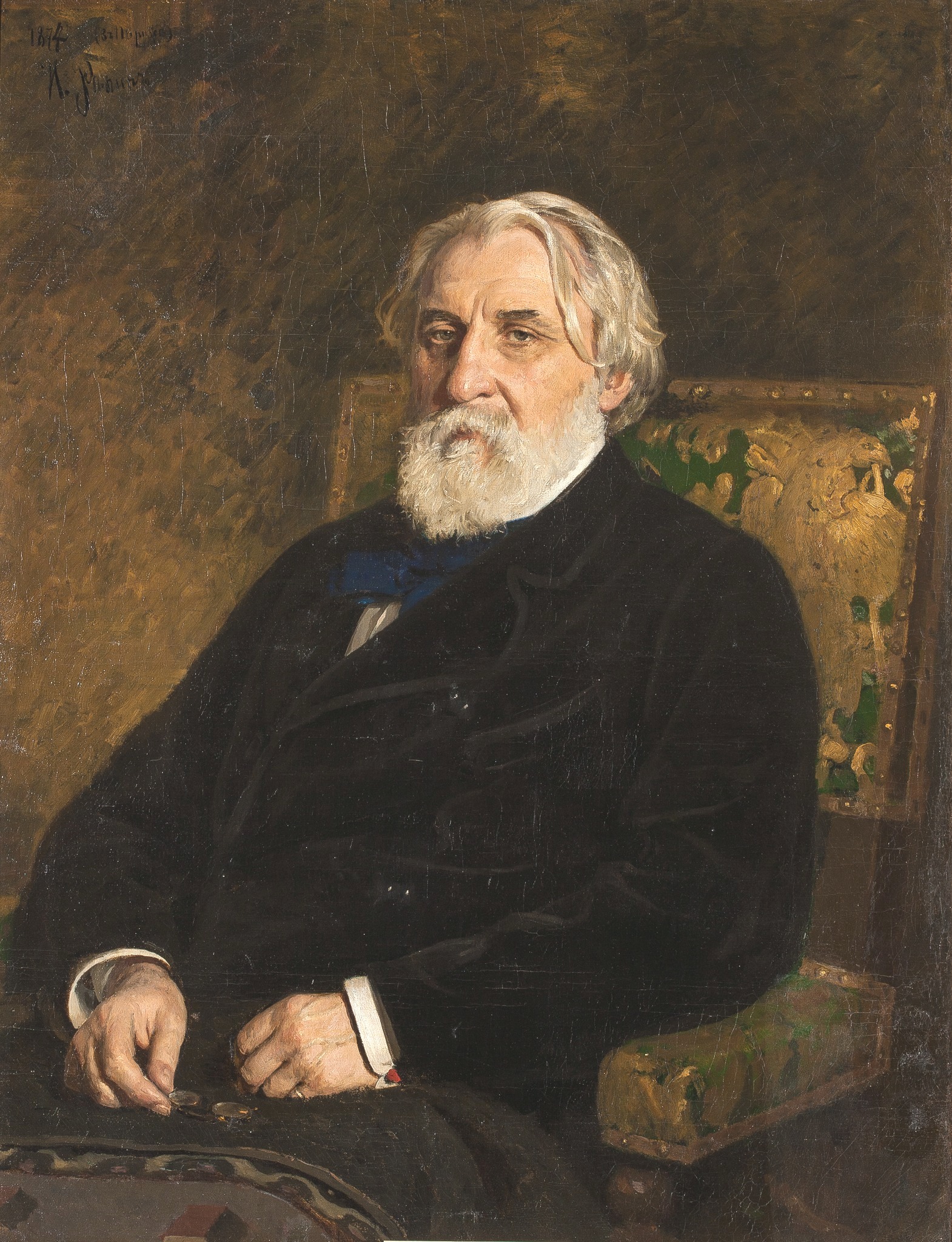
Ivan Turgenev
Ivan Sergeyevich Turgenev (/tʊərˈɡɛnjɛf, -ˈɡeɪn-/ toor-GHEN-yef, -GAYN-;[1] Russian: Иван Сергеевич Тургенев[note 1], IPA: [ɪˈvan sʲɪrˈɡʲe(j)ɪvʲɪtɕ tʊrˈɡʲenʲɪf]; 9 November [O.S. 28 October] 1818 – 3 September [O.S. 22 August] 1883) was a Russian novelist, short story writer, poet, playwright, translator and popularizer of Russian literature in the West.
"Turgenev" redirects here. For the surname, see Turgenev (surname).
Ivan Turgenev
Ivan Sergeyevich Turgenev
9 November 1818
Oryol, Oryol Governorate, Russian Empire
3 September 1883 (aged 64)
Bougival, Seine-et-Oise, France
Writer, poet, translator
Novel, play, short story
1
His first major publication, a short story collection titled A Sportsman's Sketches (1852), was a milestone of Russian realism. His novel Fathers and Sons (1862) is regarded as one of the major works of 19th-century fiction.
Antisemitism[edit]
Turgenev was known for his venomous descriptions of the Jewish figure, for example in his story "The Jew" (1847). (The story's title in Russian, "жид" (zhyd), is a pejorative.) The story describes a "zhyd" named Hirschel as short and thin, with yellow hair, red eyes that he blinks constantly, and a long and crooked nose. He pursues his greed to the point of prostituting his daughter, and is quoted as saying that "money is a good thing, you can get anything with it". Hirschel is described as heartbroken, and in the description of his trial on charges of espionage, he is sentenced to death. Turgenev describes him as shaking with his whole body, shouting and meowing, "until he involuntarily brought a smile to our faces." In a similar way, the beating of another Jew and the attempt to kill him is described as being met with laughter from the audience.[20][21][22]